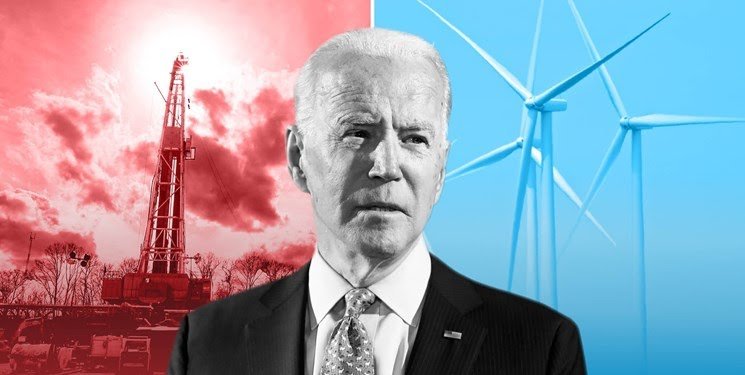Why does Biden continue to support Iran’s removal from the world energy market?
Although the Biden administration, unlike the Trump administration, does not seek to conquer world energy markets and prioritizes investing in green energy, there are indications that the Biden administration is also seeking to maintain sanctions against countries such as Iran.
Former US President Donald Trump pursued one goal with all his might: greater US independence in energy production at all costs; And to some extent it achieved this goal. The United States has been able to achieve the highest oil and gas production in its history thanks to the vast investments made by the federal government since Obama in the production of oil from unconventional oil fields.
The production of American companies increased so much that American companies began to build new anchorages for the export of liquefied natural gas to China and Europe. It was in the shadow of this policy that Trump, despite all his interest in maintaining his personal friendship with Putin, boycotted the North Stream 2 pipeline and blocked its completion in recent months.
The Trump administration also did its best to force Eastern European countries to buy liquefied natural gas from American companies; An incident that caused great concern to Gazprom. The Trump administration’s aggressive approach was not limited to Europe, but Washington did its best to force China and India to buy European oil and gas.
In 2019, when the two countries agreed to resolve the trade imbalance between China and the United States, one of China’s most important commitments was to increase its purchases of natural gas from the United States.
* Conquering the world’s energy markets by imposing sanctions on other countries
In addition to trying to increase oil and gas production, the Trump administration has taken an aggressive approach to ousting some of its most important oil and gas exporters from world markets.
Under Trump, the toughest sanctions were imposed on Iran after the US withdrew from the UN Security Council with the aim of zeroing Iran’s oil exports. The situation was similar in Venezuela.
On the other hand, with the escalation of the conflict in Libya, the country’s exports practically reached zero. In a short period of time, nearly 4 million barrels of oil from the exporting countries were practically taken out of orbit and replaced by 4 million barrels of US oil.
Of course, this period of popularity of oil and gas exports in the United States did not last long, because with Biden’s victory, this policy was practically diverted to another direction, which was aimed at combating climate change, especially in the United States.
Perhaps one of the most contentious issues between the two candidates during the 2020 US election campaign was the issue of climate change in the country. While Democrats have stepped up their efforts to pass a comprehensive anti-climate change bill since the US House of Representatives won, the Trump administration has refrained from doing so in favor of such a policy.
But Biden’s victory paved the way for a change in the federal government’s policy on how to tackle climate change and invest more in it. During the presidential election, Biden had a serious discussion about implementing a program called the “Green Deal.”
The goal is to re-lead the United States on climate policy and zero carbon emissions by 2050. The main reflection of this policy can be seen in the text of the $ 1 trillion bill on US infrastructure; Where significant costs are allocated to the creation and development of green energy infrastructure.
In addition, the Biden government abolished tax exemptions for the development of unconventional oil fields in order to take another step in restricting US oil and gas production.
Perhaps this policy means that they should be less inclined to impose sanctions on oil-rich countries. Especially since the Americans are looking to revive Burjam. But the fact is that a look at the main goals of the Americans shows that, incidentally, sanctions may still be in their favor.









